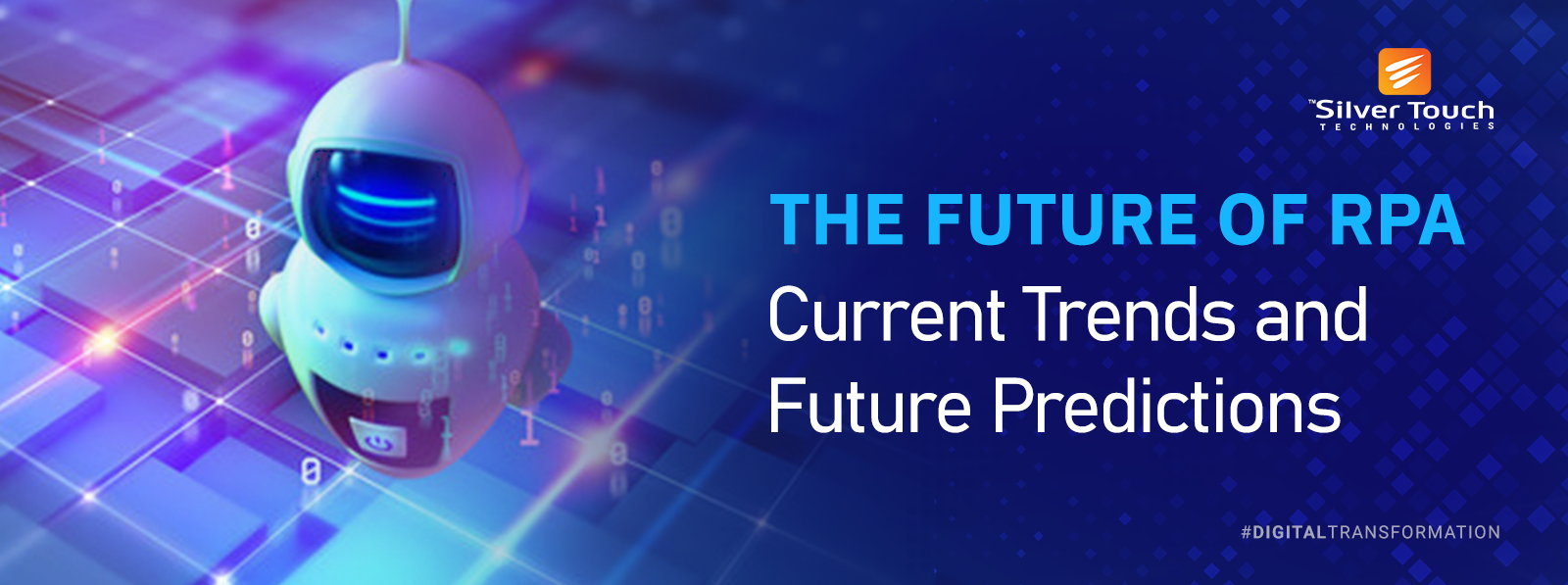We live in a data-driven world and Clive Humby has rightly said that “Data is the new oil.” Most industries focus on fetching and analyzing the data to get actionable insights to make real-time decisions, and therefore, they have transformed traditional processes into digital. As per the IDC report, global enterprises are expected to invest around $2.3 trillion in digital transformation till 2023. It simply means that enterprises are ready to integrate IT solutions into their systems.
One such advanced IT solution is Robotic Process Automation (RPA) that makes the business processes simple and brings automation for increasing productivity. Let’s dig deep into the importance and the latest trends of RPA implementation in the corporate world.
Importance of Robotic Process Automation in Industries
Robotic process automation brings automation in repetitive and even in complex business tasks. It has nothing to do with physical robots. RPA is in fact business-critical software bots that automate the operations and perform repetitive or mundane, time-consuming, and structured tasks on a 24/7 basis. A software development company can develop RPA solutions by combining machine learning, computer vision, and other futuristic technologies.
Be it a plethora of copy and paste work or data entry jobs, the software bots can perform them in seconds. This is the major reason why RPA is in demand in various industry sectors. Enterprises that want to bring digital transformation in their processes, cannot skip RPA implementation. This futuristic technology can add value by enhancing productivity and minimizing the costs involved.
There is no exaggeration in mentioning that RPA is the future of automation. But, what about the future of RPA itself? Let’s find out the answer to this question. But before this, let’s find out the current position of RPA in the corporate sector.
Current Trends of Robotic Process Automation
The numbers don’t lie, and the numbers are in favor of RPA implementation. A Grand View Research study has revealed that the market of RPA is valued at USD 1.1 billion to date, and it is expected to witness a CAGR of 33.6% between 2020 to 2027. SMEs and established enterprises tend to align their business processes with RPA and other automation technologies. This indicates the fact that RPA is here to stay.
Today, thanks to the COVID-19 pandemic, we are on the verge of recession and unemployment has reached record levels worldwide. In such a scenario, there is no surprise if enterprises consult a software development company to create an ecosystem where employees’ skills are used in sync with software bots. RPA implementation not only keeps enterprises operational in troubled times but also gives them an edge over their competitors.
Future Predictions for Robotic Process Automation
Let’s start with Gartner’s prediction. As per Gartner has estimated, RPA spending will reach $2.4 billion by 2022 across the world. Companies will hire RPA developers to implement this technology in the right way in their systems. Some of the future predictions for RPA are-
1. Rise of SPA (Smart Process Automation)
RPA is designed to automate structured data with a pre-defined set of rules. But, as technology advances, the element or feature of machine learning is integrated into the RPA solution that paves the way for SPA bots. SPA enables RPA bots to benefit from the abilities of other emerging technologies including AI and big data.
Also Read- Why Investing in RPA in Pandemic Age is Beneficial for Your Business?
2. Elimination of Paperwork
This is one of the biggest benefits of RPA implementation. IT services offer robotic process automation as a data-driven technology and assist enterprises to focus on managing repetitive, time-consuming tasks or activities. It is expected that the automation market will surge with easy-to-deploy RPA models that will automate the paperwork in the enterprises by 2025.
3. Centralized Automation Platform
Ericsson is among the pioneers of RPA implementation at a large scale by implementing individual bot for every employee. In the coming time, RPA is expected to become the repository of automation, just like Youtube acts as a repository for videos. It is fair to mention that RPA will become a centralized or single automation platform over the period.
4. Emergence of RPA 2.0
Along with normal RPA, if we include software robots, AI, ML, digital transformation, and remote workplace, we will get RPA 2.0. This pandemic age is a catalyst in the remote work movement, and moving forward, it will either make or mar businesses across the world. Companies can hire RPA developers to make the most of remote working and digital transformation through smart RPA boats. RPA 2.0 will be a game-changer in terms of productivity, innovation, and efficiency across all departments.
Concluding Lines
In recent times, RPA bots and intelligent automation (IA) solutions have become a necessity to survive and thrive. Companies need #rpaimplementation to deal with the situation arises in these pandemic and post-pandemic times. RPA can open new horizons for every business and bring new potential to your company for offering a better and personalized customer experience.
Silver Touch is a renowned software development company that offers end-to-end IT solutions to meet the most complex and diverse business requirements. We are the CoE of Automation Anywhere for providing high-quality RPA services to our global corporate clientele. Do you want to know more about our services and solutions? Simply send us an email at info@silvertouch.com, and our expert consultants will contact you soon.



